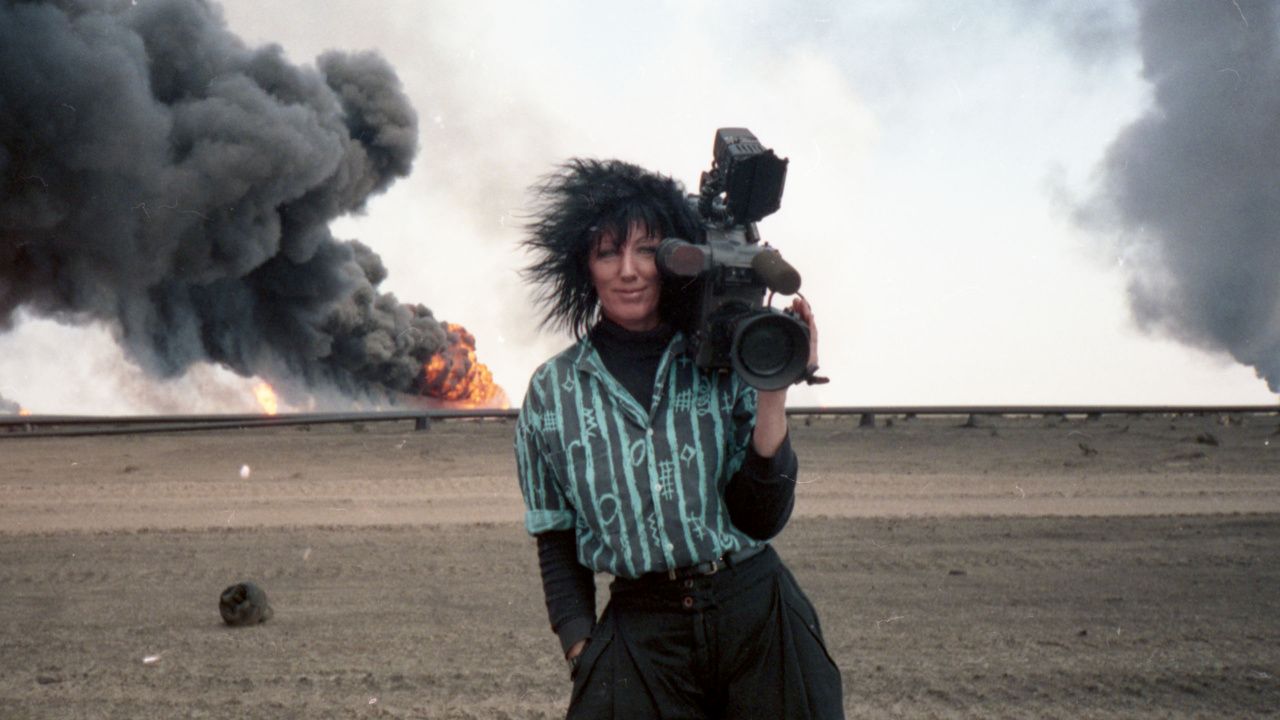
Margaret Moth appears in ‘Never Look Away’ by Lucy Lawless, an official selection of the World Documentary Competition at the 2024 Sundance Film Festival. Photo: Courtesy of Sundance Institute.
Opening in theaters on November 15th is the new documentary ‘Never Look Away’, which was directed by actress Lucy Lawless (‘Xena: Warrior Princess’ and ‘Minions: The Rise of Gru’) and chronicles the life of New Zealand photojournalist and CNN war reporter Margaret Moth.
Moviefone recently had the pleasure of speaking with Lucy Lawless about her work on ‘Never Look Away’, learning of Margaret’s story, deciding to direct the documentary, her research, setting up the interviews, Margaret’s passion for her work, her resilience, and if Lawless will direct again.
Related Article: Director Chris Renaud Talks ‘Despicable Me 4’ Digital Release
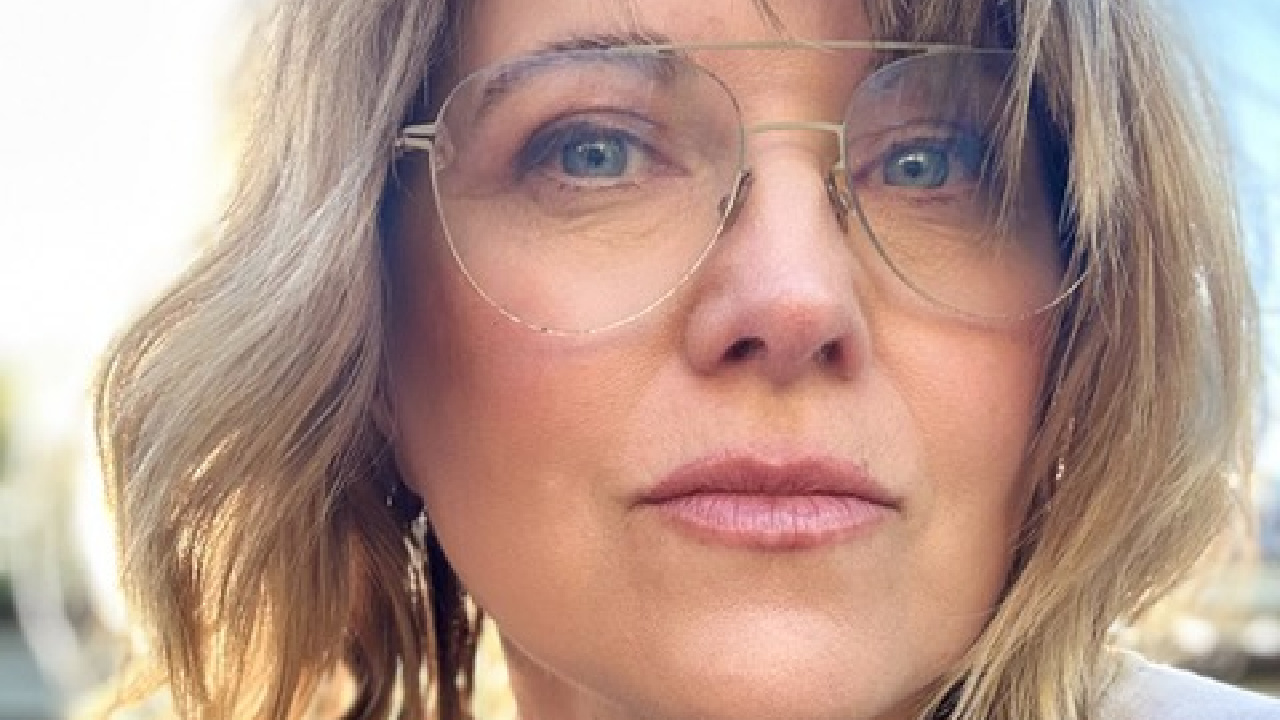
‘Never Look Away’ director Lucy Lawless. Photo: Courtesy of Sundance Institute.
Moviefone: To begin with, what was your first reaction to learning of Margaret Moth’s life story and why did you want to make this movie?
Lucy Lawless: Well, when I got the email, it was a cold call. Everything I knew about Margaret Moth must have been from the news report of her being sniped during the seizure of Sarajevo. I got the email, and I was terrified that it was a form letter that had gone out to a thousand other people, and everybody would want to make it. So, I immediately wrote back, “Yes, I will find the money. I will produce this; I’ll make sure this gets made.” I pushed send and then I went, “Holy smokes Lucy, who are you to go making these rash promises? You’ve never done this before.” But I was already in too deep. I could not back out. I was like, “Well, it can’t kill me. Better go forward.” So, forward is my watchword now, because there is only forward, whatever adversity comes your way, you can only push forwards.
MF: Was the idea always to make a documentary or did you consider making a narrative film and playing Margaret yourself?
LL: Yes, we thought about that. I work with actors every day. I have done it now for 38 years. That wasn’t at the time the most exciting prospect. Plus, it takes a long time. You’d have to find the right writer and shape the story, and we’d still be in pre-production. What’s more, COVID was hitting, and I became terrified that all the people who held the information about Margaret might die. So, what did I do? I got on a plane with a buddy, and I went to America, and we started interviewing people. I’d never done it before. I did not know what I was doing, but especially with Jeff Russey, who was Margaret’s lover. He was raw because he had never examined it. He’d spent all these years in addiction and other issues, and he was extremely raw. So, we interviewed him three times and by the end he’d gone from being still enraged and bereft, to whole. In fact, Jeff passed away at Christmas and he never got to see the film, but I was the last person to talk to him, and he was laughing, He was a brilliant man. He was a good friend and maybe the most important component of the film because he gave it the emotional through line that the whole film hangs on.
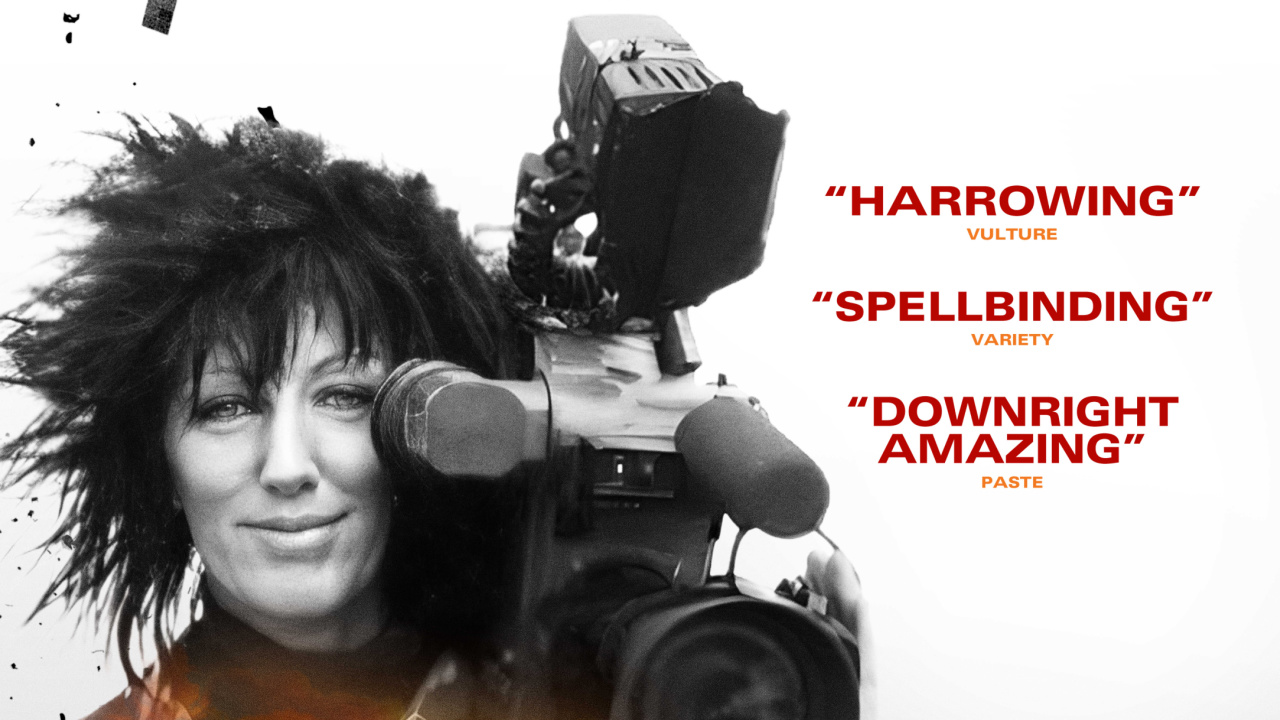
Margaret Moth appears in ‘Never Look Away’ by Lucy Lawless, an official selection of the World Documentary Competition at the 2024 Sundance Film Festival. Photo: Courtesy of Sundance Institute.
MF: Can you talk about the process of conducting the interviews? Was everyone open and willing to speak with you about Margaret?
LL: No, not everybody would talk. I suspect because Margaret was not likable to everybody. She was not inclined to be agreeable. Plus, she might’ve had something called face blindness, which we don’t go into in the story because I couldn’t corroborate it. So, she could meet Anderson Cooper in the elevator and never recognize him. So, some people probably didn’t want to say what they truly thought about Margaret, but a lot of people did, and she was a spicy character, and I like that about her. I feel like our flaws are what connect us. It’s not saintliness, I’m not interested in sainthood. I think Margaret like a lot of us, feel that my sins are my own and I’m not giving them away. They’re part of my humanity.
MF: What was your experience like interviewing journalist Christiane Amanpour?
LL: You know, the day that we interviewed Christiane, it was the day that Russia went into Ukraine and all the journalists were pinned to their chairs. They’re so trauma bonded to conflict. They need to be there. Their colleagues are there facing danger. They need to be doing their bit. It’s their vocation. So, it was very generous. She gave us 40 minutes of her time, and every word was gold. So, I think that’s a mark of her respect for a fallen comrade. She was amazing. She said Margaret would sleep with her boots on because she had to be ready.
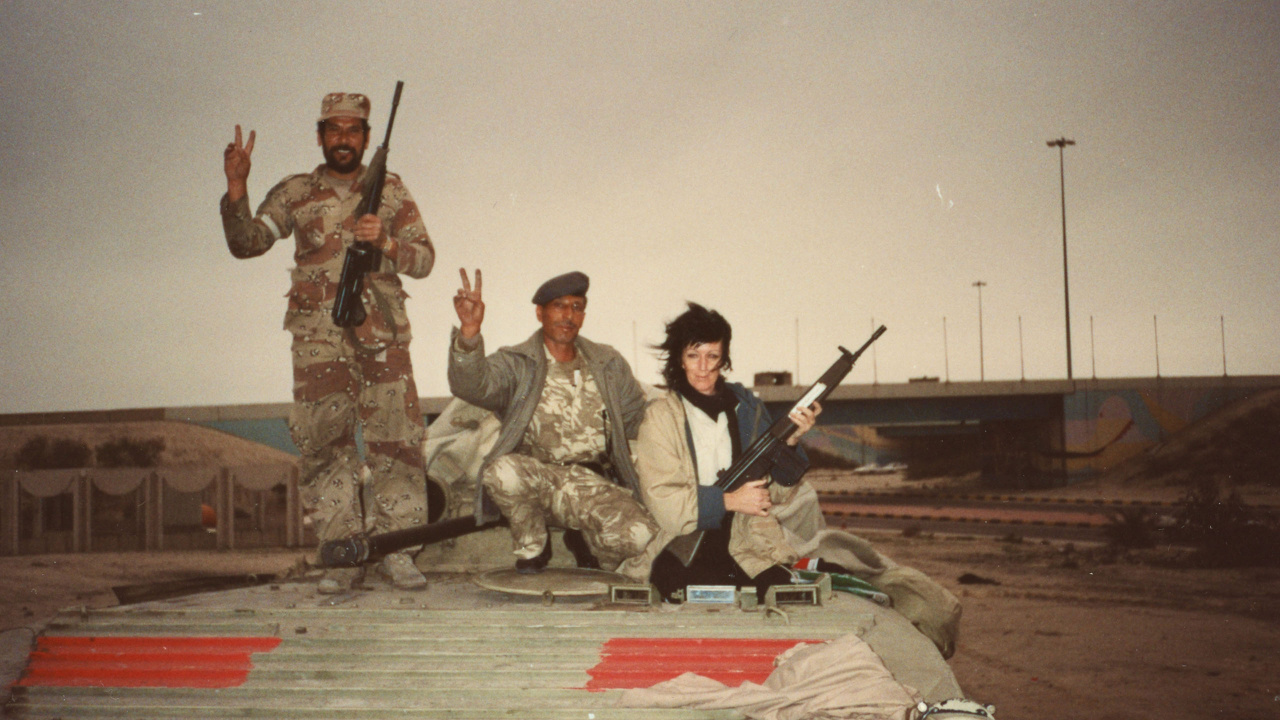
Margaret Moth appears in ‘Never Look Away’ by Lucy Lawless, an official selection of the World Documentary Competition at the 2024 Sundance Film Festival. Photo: Courtesy of Sundance Institute.
MF: Can you talk about Margaret’s passion for being a war correspondent?
LL: Her war would have to be the seizure of Sarajevo, the Bosnian war, because that’s where she was sniped. That was the turning point in her life. I think the Gulf Wars sort of excited her because it was a new kind of drug because she quite liked drugs. But Sarajevo in a horrifying way was the making of her because she’d lived a life of pleasure, sex, super young men and drugs but she found her redemption in war, in telling the truth and serving the truth. I think that’s critical today that here’s this war on truth. Nobody believes anything they hear anymore, but truth tellers are important. We are jailing whistleblowers as if they’re bad people, but we need to tell the truth about things otherwise, we’re a bunch of sheep going to the slaughter. So, I just want to say this is the cost of truth telling and bring some respect to these people. They need protection like never before, they’re more targeted today than ever. So, if anything comes out of this, I want it to be an acknowledgement of these people who face death repeatedly to tell the truth.
MF: Can you talk about her resilience as a human being and her choice to go back to work after her injury?
LL: I think for Margaret, she had lost her beauty, which she always relished and her standing in a community, her teeth, her tongue, obviously her speech, and she did look like a monster. She always feared, do I look like a monster? She did look like a monster, and I just found that was extremely interesting. I wonder if this pitiless childhood that I later found out about two thirds of the way through the film, meant that she never developed the capacity to feel sorry for herself. That was what saved her. That became her superpower. After that, when everything else was gone, the beauty, the status, et cetera, all that was left was the job. Telling the story, the story of history, the story of the innocence, and the non-combatants of war. That’s all that mattered to her. In a funny way, there’s a weird byline of this film, which is how to die with equanimity or how to face death with poise, and it’s about how you lived. She just ate life. I think that’s how we would all like to be when we’re eventually taking that long last walk.
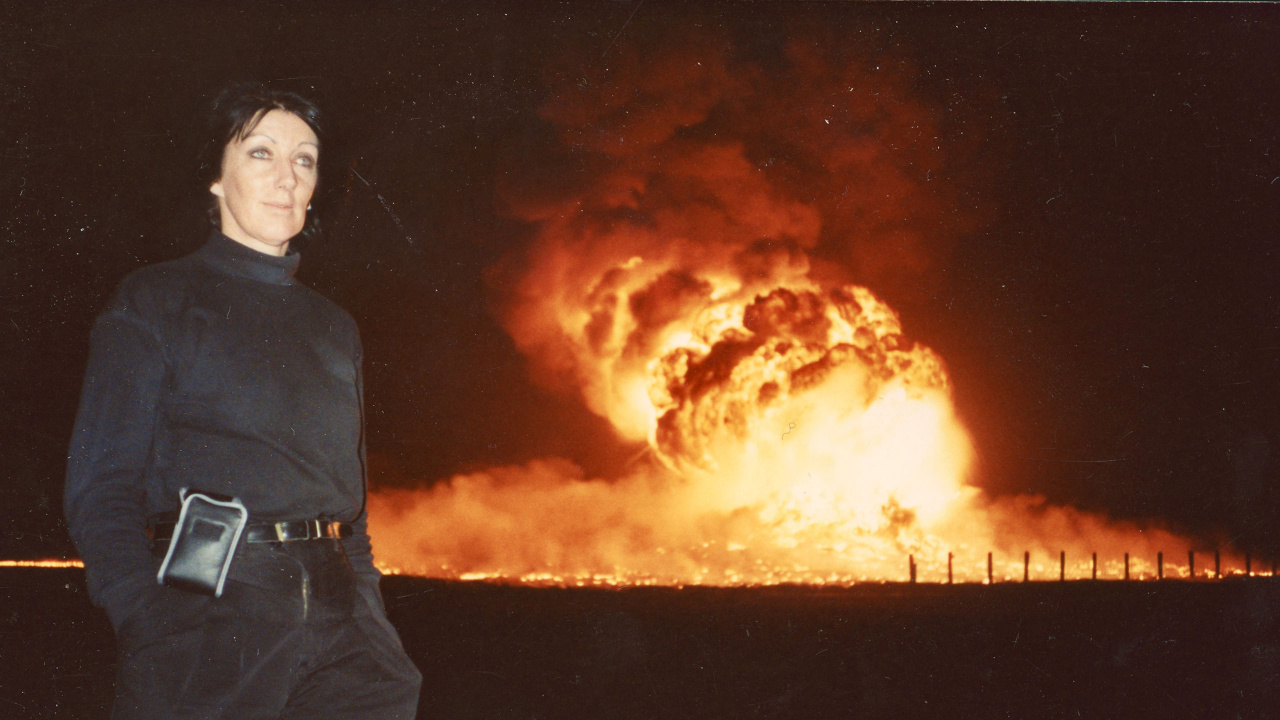
Margaret Moth appears in ‘Never Look Away’ by Lucy Lawless, an official selection of the World Documentary Competition at the 2024 Sundance Film Festival. Photo: Courtesy of Sundance Institute.
MF: Was it difficult finding the additional archival footage you needed to complete the film?
LL: Oh my gosh, there was so little footage. I know it feels like there’s a lot, but there’s so little. So, we made the most of what we had. Margaret had some footage from her days in the seventies as a camera person in New Zealand, and there were her photographs from a suitcase of memories that her best friend was holding. Other than that, it was a real nightmare because we went to CNN, and they were willing to be as helpful as they could. But the fact is that in those days, all news footage was recorded on beta tapes. They’re huge. At the end of the day, they would edit them in the field, send the finished package back to Atlanta, and then the tapes would either get taped over or destroyed. There was no B-roll and camera people didn’t get credited. So, there was no way to cross-reference where was Margaret? We had to go back, look at her passport, look at the press passes, and do our due diligence. Some anecdotal stories were, I knew she was at certain conflicts, but the truth is there’s a lot of other people’s work in this film. Which as a filmmaker, that’s the cost of bringing you a cogent interesting rollercoaster of a story. I had to give away on that a little.
MF: Finally, what was it like for you directing this movie, and would you like to direct again in the future?
LL: Oh, I want to, now I want to work with actors. Now that I’ve figured it out, now I understand editing stories and making documentaries is much harder. Because you don’t have a script, you don’t know where the story is before you’ve collected the information and done the interviews. Now that I’m set, sound design, music, these are things that I never really had so much say in before, but now I’m ready to apply that to what I know best, which is drama. Now I’m working on three projects because you need to have a lot of things going. You never know what’s going to hit, and what’s going to get financed. It’s tough these days, but I found a couple of things that I’m super excited about and I’m pressing forward with those.
What is the plot of ‘Never Look Back’?
CNN camerawoman Margaret Moth fearlessly captures footage of war zones. After receiving catastrophic injuries in the crosshairs of battle, she returns to work with more courage than ever. An intimate portrait of a trailblazing female photojournalist. Features interviews with Moth’s family and friends, including CNN’s Christiane Amanpour. A Sundance film festival premiere directed by Lucy Lawless.
Who is featured in ‘Never Look Back’?
- Margaret Moth as Self (archival footage)
- Christiane Amanpour as Self
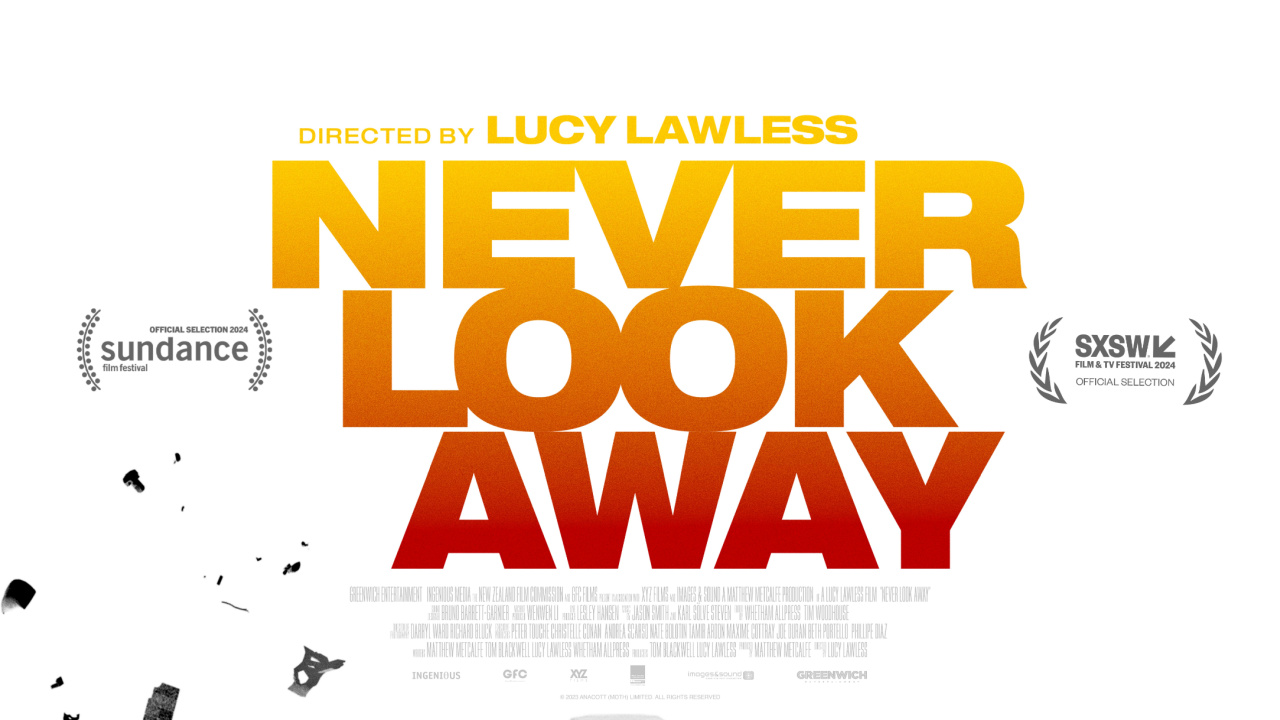
‘Never Look Away’ by Lucy Lawless, an official selection of the World Documentary Competition at the 2024 Sundance Film Festival. Photo: Courtesy of Sundance Institute.
Lucy Lawless Movies and TV Shows:
Buy Lucy Lawless Movies on Amazon

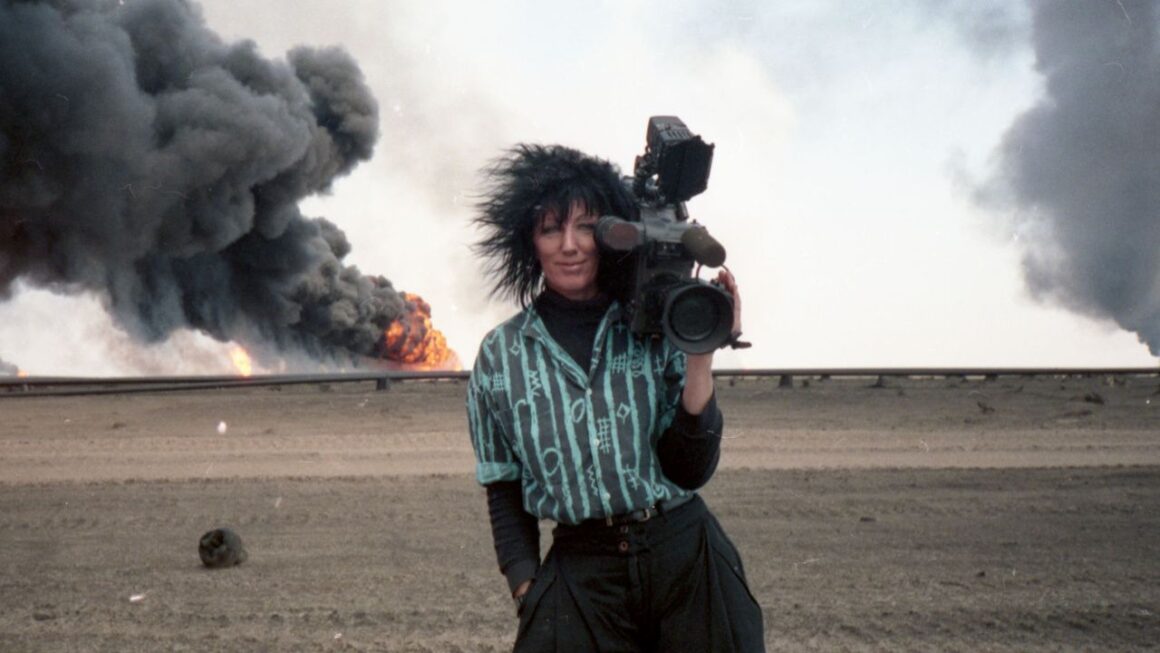
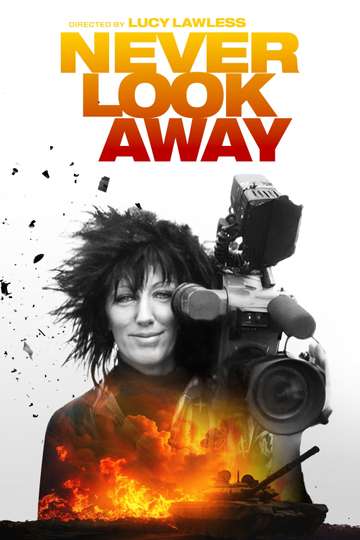
Leave a Reply